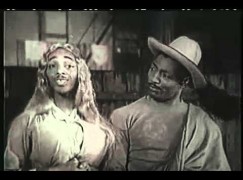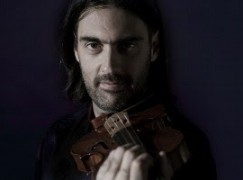Have you seen the Rigoletto Blues?
mainOur friend Valerio Tura is a conoisseur of the little-known 1930s crossover zone between swing singers, rhythm-and-blues and grand opera.
Try this from the Delta Rhythm Boys.


Our friend Valerio Tura is a conoisseur of the little-known 1930s crossover zone between swing singers, rhythm-and-blues and grand opera.
Try this from the Delta Rhythm Boys.

The Finnish music world is in mourning for…

Singers’ agents tell us of a tsunami of…

Colleagues are mourning the sudden death of the…

The Greek violinist Leonidas Kavakos is to be…

Session expired
Please log in again. The login page will open in a new tab. After logging in you can close it and return to this page.
That’s a hoot. Thanks!
Rivals the met on any evening for on pitch singing
Netrebko should take note …….
Such extraordinary creativity and musicianship. Their work is an interesting example of the complex subtexts that can exist in musical performance. There’s a discomfort in what might be termed the Amos-and-Andyism of some of their performances – the later evolution of the minstrel tone common in the 40s and 50s. As was characteristic of so many black performers of the time, including even Louis Armstrong, they had to play a low status game, an affected persona of inferiority that stood in contrast to obvious musical genius. The subtext of the subtext is that they still somehow managed to convey their dignity, a layer of anti-racist irony on top of the more obvious self-demeaning ironies required of them. Or at least for those with the eyes to see it.
I think there was also a class version of the same thing (though not nearly as severe) directed toward rural whites in variety shows like Hee Haw, The Beverly Hill Billies, and The Grand Ole Opry. One might term it whites in rural whiteface. There might even be an opposite corollary in magazines like The New Yorker, the self-consciously affected whiteface that represents the persona of the uban white sophisticate. That affected, quasi British accent used by some announcers on NPR and PBS (especially when donors and advertisers are listed) seems to be the same thing.
We see that among other things, performance is an expression of status.
So it’s no surprise that the Delta Rhythm Boys and many other black performers, and even white jazz musicians began leaving the USA in the mid 50s to live in Europe where they did not face the same kinds of racism and/or were embraced by societies organized in ways that better supported cultural intelligence.
Anyway, I’m truly thankful that we have these videos and recordings of such fabulously gifted musicians.
Then there was Sesame Street’s take on Rigoletto:
https://www.youtube.com/watch?v=SJhwmJ8aTHY
Which is no where as good as Delta Rhythm Boys
I’ve heard this piece for many years as a barbershop quartet piece, which might have been the originally version somewhat jazzed up for this ensemble. Of course I only heard that in the 1960s, as sung by a close-harmony quartet that sang on programs of the Pomona College Glee Clubs between sets of more serious music from Monteverdi through Bach to 20th century compositions. Since the heyday of barbershop was before the 1930s, I wonder if that was the origin of this Rigoletto quartet. In any case, it is delightful.